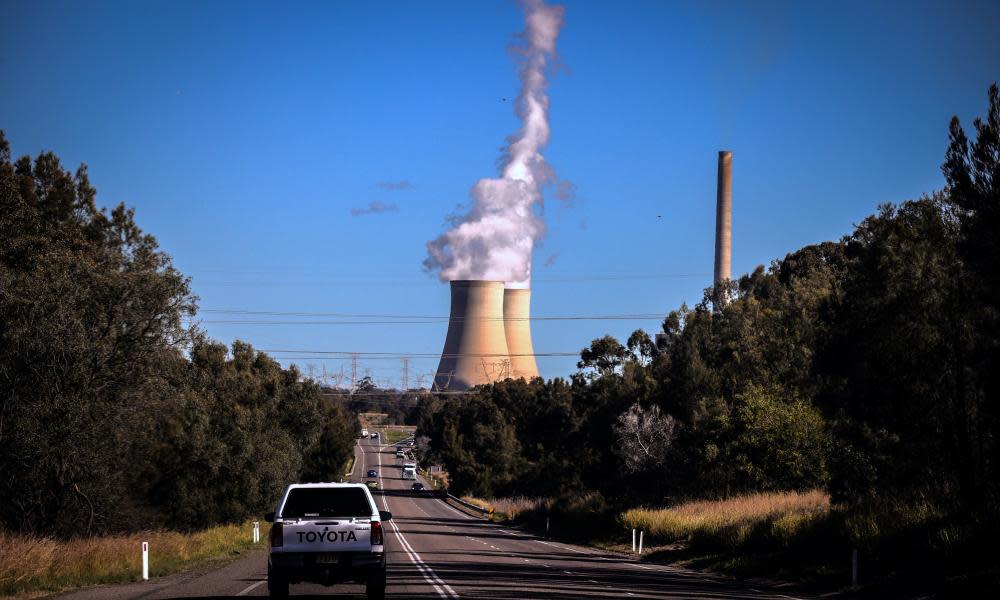Australia has coped fairly well with the pandemic. With climate change? It’s a different story

The release last week of the OECD’s Going for Growth 2021 report on Australia provided a needed reality check for those thinking Australia’s economy is the envy of the rest of the world. But more importantly, it reminded us of just how poorly Australia is dealing with climate change.
There is no doubt in a general sense that Australia has coped well with the pandemic.
We made use of our natural advantage of being an island nation to largely prevent outbreaks. The latest labour force figures revealed the hours worked per capita is back to e pre-pandemic levels:
Graph not displaying properly? Click here
There remain concerns – the figures don’t yet include the impact of the end of jobkeeper – but, it’s a damn nice position to be in given the past 12 months.
And then along comes the OECD to rain on our parade by reminding us that those issues that were there before the pandemic have not gone away.
In its 2021 Going for Growth note, the OECD notes that while our employment rate is high, our GDP per capita is 9% below the top half of the OECD nations, and our productivity is 15% below that level:
Graph not displaying properly? Click here
And then there is inequality. In that regard, we are among the worst in the OECD:
Graph not displaying properly? Click here
Now all these economic aspects are worthy of attention, but what also sticks out in the OECD’s note, and which mostly gets lost across coverage that pure economic aspects, is the damning assessment of Australia’s position on climate change.
The OECD notes, with a large degree of common sense utterly lacking from our politics, that “severe drought and catastrophic bushfires emphasized the need to act on climate mitigation policies”.
They also note that “adopting and implementing an integrated national energy and climate policy framework for 2030 would help achieve the goals of the Paris Climate Agreement”.
Gee, ya think?
As it is, the OECD graciously notes that our greenhouse gas emissions “are high but have decreased in recent years”. They kindly neglect to point out that so have everyone else’s in the OECD:
Graph not displaying properly? Click here
Our economy also remains one of the most highly dependent upon greenhouse gases. And yes, that has reduced, but again, so has everyone else’s – and at a faster rate.
At the start of the century Australia’s level of emissions per $1,000 of GDP was 1.8 times that of the median nation in the OECD; now it is 2 times:
Graph not displaying properly? Click here
One reason is we remain incredibly dependent upon coal for our energy – almost as much as is China:
Graph not displaying properly? Click here
The good news is that when you exclude hydroelectricity (always a difficulty in this flat country of ours) our dependence upon non-combustible sources of energy such as solar and wind is around the average of the OECD.
That’s good, but given our natural advantages in solar (something certainly lacking in countries like Canada), we really have little to congratulate ourselves on.
Related: Morrison government can’t conceal inaction on climate from US with ‘smoke and mirrors’
The UK gets 20% of its electricity from wind, compared to our paltry 6.7%, which is lower than the US.
It’s clear that electricity supply is not the only issue.
Our road transport remains much more carbon-intensive than other nations in the OECD – and worse, while other nations are reducing their intensity, we are going the other way:
Graph not displaying properly? Click here
It’s almost like having a federal government utterly hostile towards electric vehicles and anything remotely connected with renewables is not a good thing.
In the upcoming budget there will be talk about tax cuts and the need to lift productivity, and most likely big talk about women; but we know the only real efforts on climate change will likely be about a “gas-led” recovery as though gas is some magical non-emitting fossil fuel.
Will there be much pressure from the opposition for the government to do anything?
The new shadow minister for climate change and energy, Chris Bowen, said all the right things to Katharine Murphy on her podcast last week, if not actually detailing anything really close to actual policy specifics.
But then the shadow minister for resources, Madeleine King, told The Australian on Monday that Labor was “absolutely not supportive one bit” of suggestions of a moratorium on new coalmines as well as the defeatist line (that could have been spoken by Scott Morrison or Peter Dutton or Angus Taylor) that “I aspire to net-zero emissions by 2050 but not every country is going to make it”.
Now sure, you will argue, Labor need to say that or they will lose the next election (or at least that is what they have convinced themselves they need to say).
But it also releases any pressure on the government doing anything, knowing that the ALP remains hamstrung on the policy such that shadow ministers will utter inanities such as “we all want a renewable energy future but it will not, cannot, happen overnight”.
“Cannot” is rather different from “will not”.
But then what seems to be lacking is the will rather than the ability.

 Yahoo Movies
Yahoo Movies 
